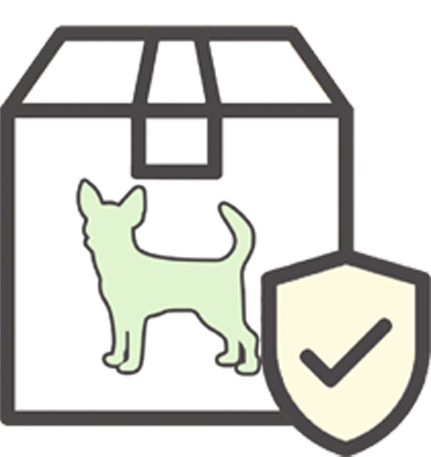Are Dog Behavior Problems Linked To Gut Health?
Friday, November 30, 2018 05:04:21 PM America/Los_Angeles
Our pets are part of our families. Words can’t even describe how much joy and comfort a pet can bring to your family. Your dog pet is your best friend that will always show you unconditional love, boundless enthusiasm, and trust all the time. As a loving pet owner, you will always do everything possible to provide your dog with high-quality food, abundant exercise, indoor potty grass for dogs, and of course, a warm shelter.
However, did you know that taking care of your dog’s gut health may be the most important thing that you need to do? Just like human beings, your dog’s gut is the foundation of their health and by far, the largest immune organ in their bodies. The gut plays a critical role in your dog’s life such as preventing toxins and other undesirable bacteria from finding their way into the dog’s bloodstream.
It also ensures that your dog digests and absorbs all the valuable nutrients from the food and other supplements that it feeds on. Therefore, it is crucial to think about what you are feeding your dog on since it could be causing a wide range of dog behavior problems.
Dog Food, the Gut, and Behavior Problems
Just like humans, dogs tend to have larger stomachs and shorter digestive tracts. The dog’s mouth also lacks the essential glans that can initiate the process of starch digestion in the mouth. The anatomy of dogs is perfect for digesting high-quality protein within a short period. Various studies have also proved that some dog breeds have developed the unique ability to produce some enzymes that aid in the starch breakdown.
This means that some dog breeds have developed starch tolerance to crease their odds of surviving alongside human beings. This is the primary reason why most pet owners believe that dogs can eat exactly as we do but the big question remains; what kind of nutrients do they get from their diet?
The food that you fed your dog and its impact on the gut may be one of the most overlooked things in the modern world since most of us tend to be more concerned by other aspects such as the dog bathrooms and dog grass.
A recent study conducted at the University of California established that microbes link to specific areas of the brain which usually affect mood and behavior including response to fear and anxiety. This means that the food your dog eats can lead to various behavior problems. High quantities of trans fats and high-sugar diets may also lead to anxiety and depression.
The Connection betweena Dog’s Gut Health and Behavior Problems
Typically, high-sugar, processed dog foods lead to increased release of bacterial toxins referred to as lipopolysaccharides that hang out safely in the dog’s gut. However, when these bacterial toxins enter the dog’s bloodstream, they become highly toxic.
But, how does this affect your dog’s behavior? Well, the lipopolysaccharides tend to destroy the brain cells that secrete the neurotransmitters serotonin and dopamine which are the primary happiness hormones. Scientific research has proven that the lack of these essential hormones will have a significant impact on your pet's behavior.

Dog Food and the Behavioral Brain Waves
Improving your dog’s gut health will play a critical role in ensuring that there is sufficient production of the neurotransmitters needed to improve its behavior. Therefore, it is safe to conclude that your dog's behavior largely depends on the food it feeds on. Just like human beings, the Enteric Nervous System (ENS) of your dog links to the emotional aspects of its central nervous system.
In simple terms, every time your dog eats, the ENS transmits messages to its brain which affects its emotional state. Certain types of foods will help your pet remain calm while others will make it more anxious. If you love your dog, then you should understand that feeding it on food additives and other grain-based foods can cause a leaky gut that will affect your dog’s behaviors.
Most of the dog problems that you may experience stem from it not receiving a well-balanced natural diet free from food preservatives and other chemicals. Some of the common dog problems caused due to lack of a balanced natural dietinclude; aggression, self-mutilation, separation anxiety, obsessive-compulsive disorders, increased urge to use its indoor dog potty, and hyperactivity. The most effective way that you can deal with these problems is by taking a holistic approach to your dog’s health and wellbeing.
Ways to Support Your Dog’s Gut Health
Fortunately, there are lots of things that you can do to help improve your dog’s gut health and lessen the negative impact it might have on your dog’s behavior. Be mindful of the amount of chemicals that you are feeding your dog on and always ensure that your dog is feeding on the right nutrients. Here are some of the simple ways that you can support your dog’s gut health:
- Go for testing instead of over-vaccinating
- Provide your dog with fresh water instead of chlorinated water
- Provide probiotics regularly
- Feed it with various supplements
- Use a holistic vet
- Use natural remedies for de-worming
- Provide them with a DoggieLawn so they always have access to go potty and don't have to wait for you to take them out.


